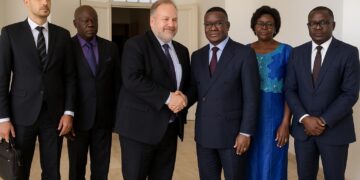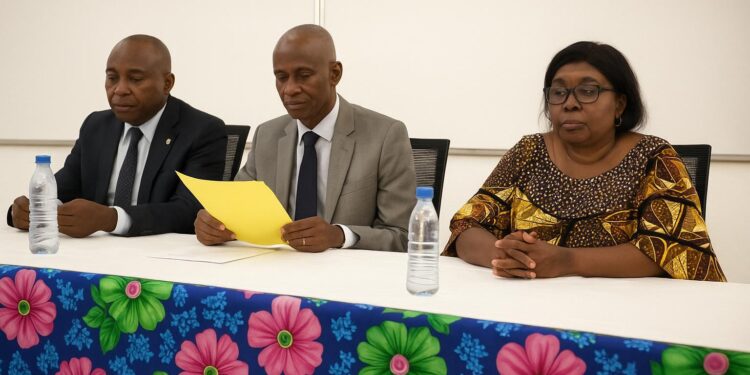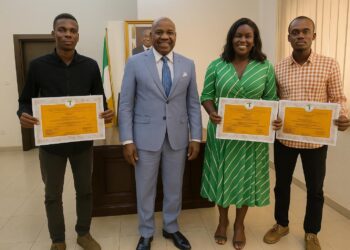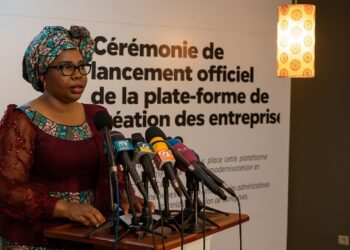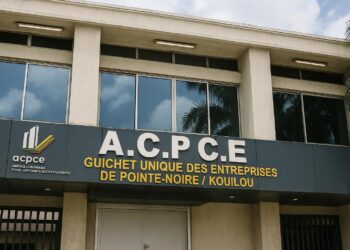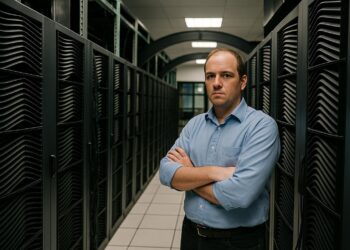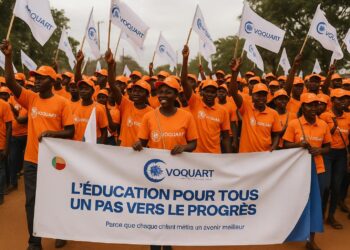Kintélé Hosts Second Scientific Week
On 6 October, the Denis-Sassou-Nguesso University campus in Kintélé opened its second Scientific Activities Week for the Faculty of Applied Sciences, four years after the inaugural edition. Dean Professor Arnaud Wilfrid Etou Ossibi described the gathering as a pivotal milestone for the young institution.
Under the headline “Applied Research: Sustainable Solutions for Companies and Target Populations”, the week aims to weave academic coursework with sector-specific themes demanded by the Congolese economy. Organisers expect the format to sharpen student orientation toward science and technology careers while showcasing home-grown innovation.
Strategic Focus on Student Orientation
Faculty leaders view orientation as more than a ceremonial exercise. By confronting freshmen with real-world case studies during plenary sessions, they hope to accelerate decisive course selection. Early specialisation, they argue, lifts graduation rates and builds a talent pipeline aligned with national development plans.
Beyond classroom discussions, students will shadow engineers at Kintélé’s renewable-energy pilot sites and collect data for mini-projects vetted by faculty mentors. The practical assignments count toward credit and are copied from cooperative education models tested in Canada and Morocco, two source countries for visiting scholars.
Sustainability Lens for Congolese Industry
Opening keynote speaker Professor Jean De Dieu Nzila underscored how applied research can address municipal solid-waste challenges in Brazzaville and Pointe-Noire. His team tracks collection routes, landfill methane and informal recycling margins to design scalable solutions that lower costs and monetise carbon credits for local authorities.
A second plenary by Professor Antoine Elimbi explored geopolymers as alternative cement binders that cut clinker emissions by up to 80 percent. Given that construction materials dominate Congo’s import bill, the presentation attracted contractors keen to localise production and tap the government’s Special Economic Zones incentives.
Regional and International Academic Network
Thirty visiting scholars from Benin, Burkina Faso, Gabon and Niger joined Congolese counterparts, lending the event a scale rarely seen in Central Africa. Their presence supports the Ministry of Higher Education’s objective of positioning UDSN as a regional hub for STEM research under the CEMAC framework.
Memoranda of Understanding signed on the sidelines envisage joint patents, shared laboratory equipment and co-supervised PhDs. According to Professor Ossibi, the agreements will “shorten the idea-to-prototype cycle and open doors to Pan-African grant programmes”, a prospect welcomed by entrepreneurs attending on behalf of incubators financed by Afreximbank.
Laboratory Tours and Industry Immersion
Throughout the week, small cohorts rotate through analytical-chemistry, mechatronics and geospatial laboratories. Demonstrators stress quality-control protocols that meet ISO standards, a selling point for firms scouting for testing partners. Students witness how calibrated sensors or X-ray diffractometers translate theoretical equations into decision-grade data for mines or agro-processors.
Externally, buses ferry participants to oil-and-gas service yards in the Maloukou corridor and to the National Weather Agency’s satellite station. Such immersion demystifies industrial workflows and helps academics tailor syllabi to equipment actually deployed in Congolese operations rather than solely relying on textbook specifications.
Research Posters and Competitive Spirit
An exhibition zone highlights early-stage prototypes, including a solar-powered cassava dryer and an open-source water-quality sensor. Juries composed of industry executives judge projects on scalability, cost and environmental impact. Winners secure seed grants plus mentoring from the National Agency for Technological Innovation to accelerate commercial rollout.
A parallel contest rewards the best visual identity for the faculty, nudging students to integrate design thinking with engineering. The exercise, organisers believe, cultivates soft skills prized by employers, such as storytelling and stakeholder mapping, thereby reinforcing the employability agenda that underpins the entire academic gathering.
Implications for Investors and Policymakers
For private-equity scouts watching Congo’s demographic dividend, the event offers a live barometer of upcoming talent. Exposure to venture-grade research streams in waste management, low-carbon cement and IoT agritech signals that deal flow might soon emerge from university spin-offs rather than exclusively from family-owned SMEs.
Government agencies also detect cost-effective policy levers. By publicising performance metrics from student projects, ministries can benchmark the impact of existing tax incentives on R&D. Officials present hinted at including successful prototypes in forthcoming public-private partnerships, an approach aligned with the national Vision 2025 diversification roadmap.
Next Steps for UDSN Faculty of Applied Sciences
Professor Ossibi outlined a three-year plan to institute dual degrees with EU universities, upgrade the clean-room facility and launch a seed fund backed by regional banks. Execution will depend on sustained budget allocations and the constant calibration of curricula against employer feedback gathered this week.
Participants left Kintélé with a clear message: applied science is no longer a peripheral academic luxury but a strategic vector for Congo-Brazzaville’s industrial resilience. By favouring practical orientation and cross-border collaboration, the Faculty positions itself as a catalyst for inclusive growth in the Central African knowledge economy.








